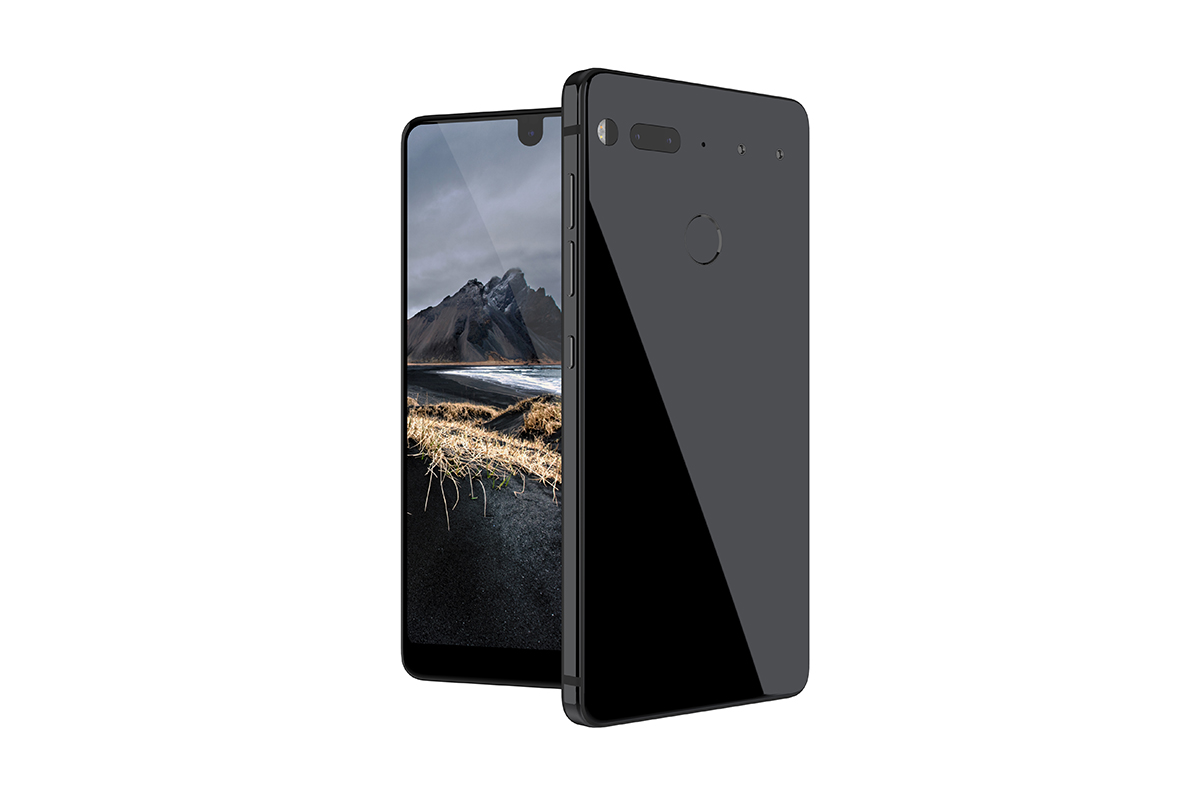 EMERGING TECH
EMERGING TECH
 EMERGING TECH
EMERGING TECH
 EMERGING TECH
EMERGING TECH
After months of teasing, Android creator Andy Rubin has finally unveiled his new smartphone. Today, Rubin announced Essential Phone, a $699 modular smartphone aimed at fixing some of today’s technology problems for which Rubin feels partly responsible.
“For all the good Android has done to help bring technology to nearly everyone it has also helped create this weird new world where people are forced to fight with the very technology that was supposed to simplify their lives,” Rubin wrote in a blog post. “Was this what we had intended? Was this the best we could do?”
According to Rubin, he founded Essential Products Inc. to create “a new kind of company using 21st century methods to build products for the way people want to live in the 21st century,” and the Essential smartphone is his first step toward that goal.
To clear up the “unnecessary clutter” found in many smart devices, Rubin said, Essential will not force users to keep any apps that they do not want on their phone. Rubin also wants Essential to work well with other devices because “closed ecosystems are divisive and outdated.”
Most of the phone’s specs are fairly comparable to higher-end Android devices such as the Samsung Galaxy S8, with a few differences. For example, Essential’s 5.7-inch display is 0.1 inches smaller than the Galaxy’s screen, and Essential does not offer a MicroSD slot or waterproofing. Essential does pull ahead of the Galaxy in a few other areas, however, such as its standard 128 gigabytes of storage and slightly faster CPU. Essential’s body is also made of sturdy, lightweight titanium, and the phone comes with its own cordless charging dock.
The feature that really sets Essential apart from more established rivals is its magnetic accessory connector, which allows users to easily attach new accessories to the phone, such as Essential’s own “world’s smallest” 360-degree camera. On the phone’s website, the company claims that this attachment point allows Essential to be “cord-free, future-proof, and always up-to-date.”
Ben Schachter, an analyst with Macquarie Research, said in a note to clients that the company is “nothing if not ambitious,” since it’s trying to compete directly against the smartphone giants.
“It would likely be written off as an idealistic moonshot in an increasingly crowded market if not for Rubin’s track record for innovative mobile software and hardware,” he wrote. But “successfully executing the vision against fierce competition form Apple, Google, Samsung, and others is a tall order.”
While Essential has a lot of exciting features to offer, there is one thing noticeably absent from the phone: a headphone jack. The phone does come with a headphone adapter dongle, but this seems a bit strange considering the company’s aversion to “clutter.”
In addition to the phone announcement, today Rubin’s company also revealed Essential Home, an Amazon Echo and Google Home competitor with a round touchscreen display. The company offered few details on Essential Home’s specs or when the device will be available, but Dwipal Desai, business unit lead for home devices at Essential, said that Home is designed with a strong focus on user privacy.
“We’ve designed Essential Home to run most things on the device itself, so most data stays in your home where it belongs,” Desai said in a blog post. “Essential Home will directly talk to your devices over your in-home network whenever possible to limit sending data to the cloud.”
The Essential Phone is currently available for pre-order at $699 for just the phone or $749 for the phone and the 360 camera. Essential Home is not available for purchase yet, but the company said it will reveal more information on the device in the near future.
That high price, especially without support from carriers, could be limit the market to “enthusiasts,” Schachter said. “Other modular phone designs in the past have, though theoretically promising, not panned out, and while Essential’s take on modular seems to be more around accessories than core phone components, creating proprietary accessories for a first-gen product is risky,” he added.
THANK YOU